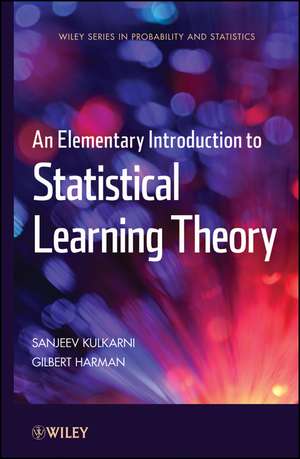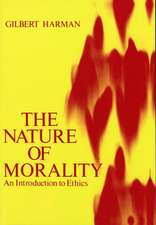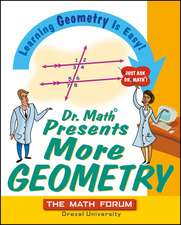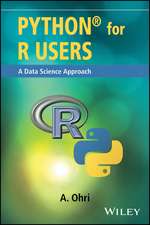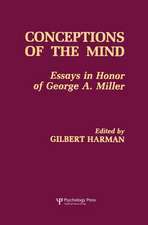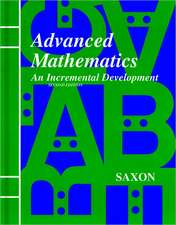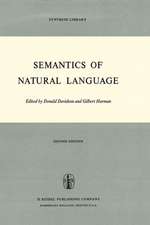An Elementary Introduction to Statistical Learning Theory: Wiley Series in Probability and Statistics
Autor SR Kulkarnien Limba Engleză Hardback – 14 iul 2011
Din seria Wiley Series in Probability and Statistics
-
 Preț: 313.49 lei
Preț: 313.49 lei - 20%
 Preț: 512.11 lei
Preț: 512.11 lei - 5%
 Preț: 1096.56 lei
Preț: 1096.56 lei - 24%
 Preț: 701.56 lei
Preț: 701.56 lei - 24%
 Preț: 1001.23 lei
Preț: 1001.23 lei - 23%
 Preț: 986.99 lei
Preț: 986.99 lei - 14%
 Preț: 882.53 lei
Preț: 882.53 lei - 24%
 Preț: 561.58 lei
Preț: 561.58 lei - 24%
 Preț: 678.67 lei
Preț: 678.67 lei - 24%
 Preț: 779.18 lei
Preț: 779.18 lei - 24%
 Preț: 831.34 lei
Preț: 831.34 lei - 20%
 Preț: 432.40 lei
Preț: 432.40 lei - 20%
 Preț: 481.54 lei
Preț: 481.54 lei - 24%
 Preț: 816.67 lei
Preț: 816.67 lei - 20%
 Preț: 442.07 lei
Preț: 442.07 lei - 20%
 Preț: 446.48 lei
Preț: 446.48 lei - 24%
 Preț: 709.67 lei
Preț: 709.67 lei - 24%
 Preț: 742.27 lei
Preț: 742.27 lei - 14%
 Preț: 734.43 lei
Preț: 734.43 lei - 14%
 Preț: 794.49 lei
Preț: 794.49 lei - 24%
 Preț: 571.27 lei
Preț: 571.27 lei - 24%
 Preț: 739.45 lei
Preț: 739.45 lei - 24%
 Preț: 840.13 lei
Preț: 840.13 lei - 24%
 Preț: 885.96 lei
Preț: 885.96 lei - 24%
 Preț: 817.12 lei
Preț: 817.12 lei - 9%
 Preț: 1084.76 lei
Preț: 1084.76 lei - 9%
 Preț: 1156.10 lei
Preț: 1156.10 lei - 9%
 Preț: 1018.55 lei
Preț: 1018.55 lei - 9%
 Preț: 1049.41 lei
Preț: 1049.41 lei - 9%
 Preț: 1005.45 lei
Preț: 1005.45 lei - 9%
 Preț: 959.15 lei
Preț: 959.15 lei - 9%
 Preț: 2242.09 lei
Preț: 2242.09 lei - 9%
 Preț: 2900.07 lei
Preț: 2900.07 lei - 9%
 Preț: 1052.38 lei
Preț: 1052.38 lei - 9%
 Preț: 1057.14 lei
Preț: 1057.14 lei - 9%
 Preț: 1703.85 lei
Preț: 1703.85 lei - 9%
 Preț: 1715.64 lei
Preț: 1715.64 lei - 27%
 Preț: 1197.22 lei
Preț: 1197.22 lei - 9%
 Preț: 967.34 lei
Preț: 967.34 lei - 9%
 Preț: 956.95 lei
Preț: 956.95 lei - 9%
 Preț: 961.92 lei
Preț: 961.92 lei - 9%
 Preț: 1148.91 lei
Preț: 1148.91 lei - 9%
 Preț: 1278.54 lei
Preț: 1278.54 lei - 5%
 Preț: 1257.50 lei
Preț: 1257.50 lei - 9%
 Preț: 1271.30 lei
Preț: 1271.30 lei - 9%
 Preț: 950.46 lei
Preț: 950.46 lei - 9%
 Preț: 1051.59 lei
Preț: 1051.59 lei - 9%
 Preț: 1123.83 lei
Preț: 1123.83 lei - 9%
 Preț: 1012.99 lei
Preț: 1012.99 lei - 9%
 Preț: 915.76 lei
Preț: 915.76 lei
Preț: 727.48 lei
Preț vechi: 799.43 lei
-9% Nou
Puncte Express: 1091
Preț estimativ în valută:
139.20€ • 145.35$ • 114.95£
139.20€ • 145.35$ • 114.95£
Carte tipărită la comandă
Livrare economică 16-30 aprilie
Preluare comenzi: 021 569.72.76
Specificații
ISBN-13: 9780470641835
ISBN-10: 0470641835
Pagini: 232
Dimensiuni: 172 x 242 x 19 mm
Greutate: 0.5 kg
Editura: Wiley
Seria Wiley Series in Probability and Statistics
Locul publicării:Hoboken, United States
ISBN-10: 0470641835
Pagini: 232
Dimensiuni: 172 x 242 x 19 mm
Greutate: 0.5 kg
Editura: Wiley
Seria Wiley Series in Probability and Statistics
Locul publicării:Hoboken, United States
Public țintă
As a book for introductory courses on statistical learning theory and machine learning at the upper–undergraduate and graduate levels; as a reference for researchers and practitioners in the fields of engineering, computer science, philosophy, and cognitive science; and academic libraries.Notă biografică
SANJEEV KULKARNI, PhD, is Professor in the Department of Electrical Engineering at Princeton University, where he is also an affiliated faculty member in the Department of Operations Research and Financial Engineering and the Department of Philosophy. Dr. Kulkarni has published widely on statistical pattern recognition, nonparametric estimation, machine learning, information theory, and other areas. A Fellow of the IEEE, he was awarded Princeton University's President's Award for Distinguished Teaching in 2007. GILBERT HARMAN, PhD, is James S. McDonnell Distinguished University Professor in the Department of Philosophy at Princeton University. A Fellow of the Cognitive Science Society, he is the author of more than fifty published articles in his areas of research interest, which include ethics, statistical learning theory, psychology of reasoning, and logic.
